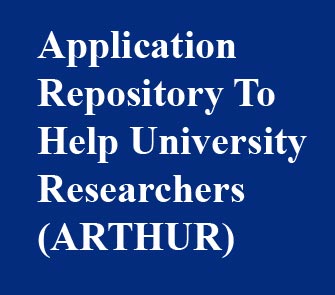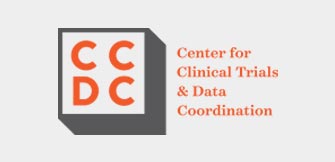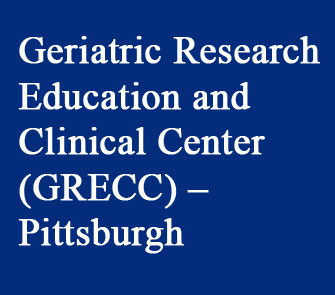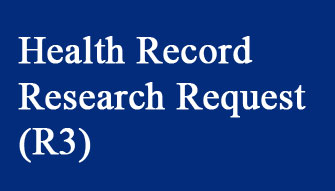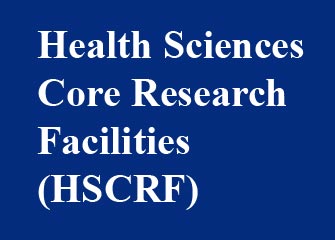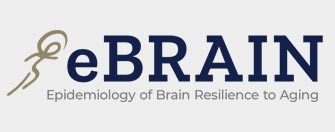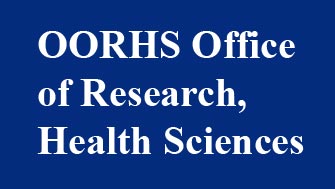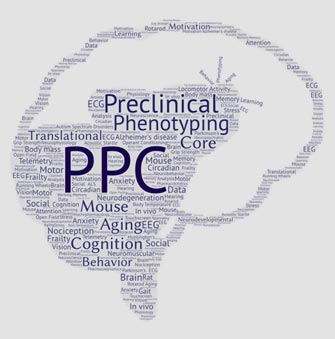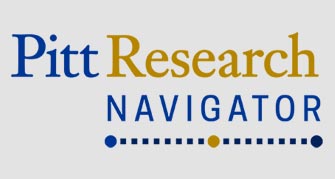University of Pittsburgh and Other Research Resources
5Ts Framework
The 5Ts Framework helps research teams identify the appropriate target population and avoid exclusions, build teams with aging expertise, anticipate additional time and resources needed, follow practical tips for accommodating age-related limitations, and use tools that measure outcomes important to older adults.
ARTHUR Application Repository To Help University Researchers
The ARTHUR database comprises successfully funded applications that comply with the current NIH format. Examples of grant applications funded by non-NIH award mechanisms (e.g., DOD/CDMRP, PCORI, and NSF) are also available.
CTSI: Clinical and Translational Science Institute
The University of Pittsburgh Clinical and Translational Science Institute (CTSI) is an integral part of the National Institutes of Health (NIH) nationwide network that provides the support necessary to bridge the gap between innovative approaches to research and effective clinical and public health practice and policy.
More specifically, the CTSI hosts resources such as:
ICRE Degree Programs
The Institute for Clinical Research Education (ICRE) offers a variety of educational, training, and career-development programs designed to enhance understanding of, and promote careers in, clinical and translational research.
Geriatric Research Education and Clinical Center (GRECC) – Pittsburgh
Focus areas:
- Mechanisms of recovery and the development of novel treatment strategies for stroke, vascular dementia, Alzheimer’s disease, and the chronic effects of TBI
- Pharmacoepidemiology, drug safety and clinical and translational informatics to improve medication and patient safety in the long-term care setting
- Developing novel clinical care systems that address pain and long-term care in elderly Veterans
- Using telehealth to support primary and consultative care, behavioral health, and socialization in the long-term care setting
Health Record Research Request (R3)
R3 is a service of the Department of Biomedical Informatics (DBMI), provisioning UPMC clinical data and authorizing additional UPMC data sources for research.
Health Record Research Request (R3) is a service of the Department of Biomedical Informatics (DBMI) managed by the Chief Research Informatics Officer (CRIO), sponsored in part by the Clinical and Translational Sciences Institute and Institute for Precision Medicine. Pitt and UPMC desire to make clinical data available for research. Under the CRIO, on behalf of UPMC, DBMI staff provision data for research (in some cases as Honest Brokers) primarily via our Research Data Warehouse, Neptune. R3 is this service or process of provisioning UPMC clinical data and of authorizing additional UPMC data sources for research. R3 is available for use by researchers of the University of Pittsburgh, and for UPMC projects requiring research datasets.
Health Sciences Core Research Facilities (HSCRF)
The Health Sciences Core Research Facilities (HSCRF) were established through the Office of the Senior Vice Chancellor, Health Sciences in recognition of the vital role that centralized research resources play in the academic research enterprise. The technology required to perform innovative biomedical research changes rapidly and centralized research resources provide access to expertise, technology applications, and state-of-the-art instruments that are otherwise unavailable to most investigators.
- Genomics Analysis Core
The GAC provides bioinformatics analysis for most types of genomic data including gene expression, copy number and methylation microarrays and next generation sequencing (NGS) data from whole genome, whole exome, targeted exome and RNA Seq. Web site coming soon.
- Health Sciences Metabolomics and Lipidomics Core
The HSMLC is a collaborative facility that provides assistance from isolated experiments to major collaborations for global analyses related to metabolites and lipids, and metabolic flux.
- Health Sciences Sequencing Core at Children’s Hospital of Pittsburgh
The HSSC@CHP provides central support for Illumina next generation sequencing for RNA, DNA, FFPE and low input applications.
- NGS Resources
A guide to local resources that are available to Pitt investigators for designing, sequencing and storing data for research involving Next Generation Sequencing (NGS).
- Peptide and Peptoid Synthesis Core
The Peptide and Peptoid Synthesis Core provides standard and custom services for peptide & peptoid synthesis, purification and characterization including Certified peptides for clinical trials.
- Pitt Biospecimen Core
The Pitt Biospecimen Core (formerly HSTB) provides central support for research programs that need clinical biospecimens, histology services, and pathology consultation for research.
- Small Molecule Biomarker Core
The SMBC uses mass spectrometry to quantitate small molecule drug and biomarker concentrations for pharmacokinetic/dynamic and validation assessments.
- Genomics Research Core
The Genomics Research Core has been restructured effective June 30, 2022. Many services have been redistributed and remain available at other centers.
- Biomedical Mass Spectrometry Center
The BioMS Center has been closed effective March 31, 2022. This Center has been available as a proteomics resource within Health Sciences for about a decade and the Scientific Director of the Center, Dr. Nathan Yates, is transitioning to a role within his home Department of Cell Biology. A service oriented resource is being reorganized and further announcements will follow later this year to provide details. If you have questions about ongoing collaborative research with Dr. Yates, then please contact him directly. If you have questions about future plans to provide proteomics service capabilities, then please contact Paul Wood pgw@pitt.edu.
Neuroscience T32 Training Grant Resources
Population Neuroscience of Alzheimer’s Disease and Age-related Dementia (PNA) Resources, including seminars on various topics including how to fund/hire/mentor students and research assistants
Our Vision
To understand the causes and mechanisms of ADRD, population neuroscientists of the future must be able to link environmental exposures, lifestyles, comorbidities, and genomics with knowledge of modern technology of neurosciences and measurements of brain disease and data science.
OACD Office of Academic Career Development
The Office of Academic Career Development is dedicated to providing professionals in the schools of the health sciences with the tools, resources, and support they need to achieve their full potential as leaders in biomedical research, education, and clinical practice. The OACD supports graduate and medical students, postdoctoral fellows, residents, clinical fellows, and faculty, potentiating career excellence at all levels.
OORHS Office of Research, Health Sciences
Office of Research, Health Sciences (OORHS) assistance is focused on improving the scientific aspects of a grant application. While the success rate (funding) at NIH is well under 20%, close to 40% of the applications on which OORHS scientists have provided assistance have been funded. (It would be even higher if some investigators did not choose to ignore OORHS suggestions!) To request assistance with grant application preparation, contact Dr. Jeremy Somers, Scientific Director of OORHS, somersj@pitt.edu.
Preclinical Phenotyping Core (PPC), University of Pittsburgh School of Medicine
The purpose of the PPC is to facilitate characterization of behavioral phenotypes of mouse and rat models studied by investigators throughout the University of Pittsburgh and its affiliated centers, institutes, and hospitals.
Pitt Research Navigator
The Pitt Research Navigator is a new service of the Office of the Senior Vice Chancellor for Research (Pitt Research) designed to reduce administrative burden and promote ease of research at the University of Pittsburgh.
The Pitt Research Navigator is available to connect faculty and research-related staff to the resources necessary to:
- initiate and continue research projects,
- improve the communication between researchers and the offices that support them,
- ensure compliance and best practices, and to
- help resolve research-related problems across campus.


